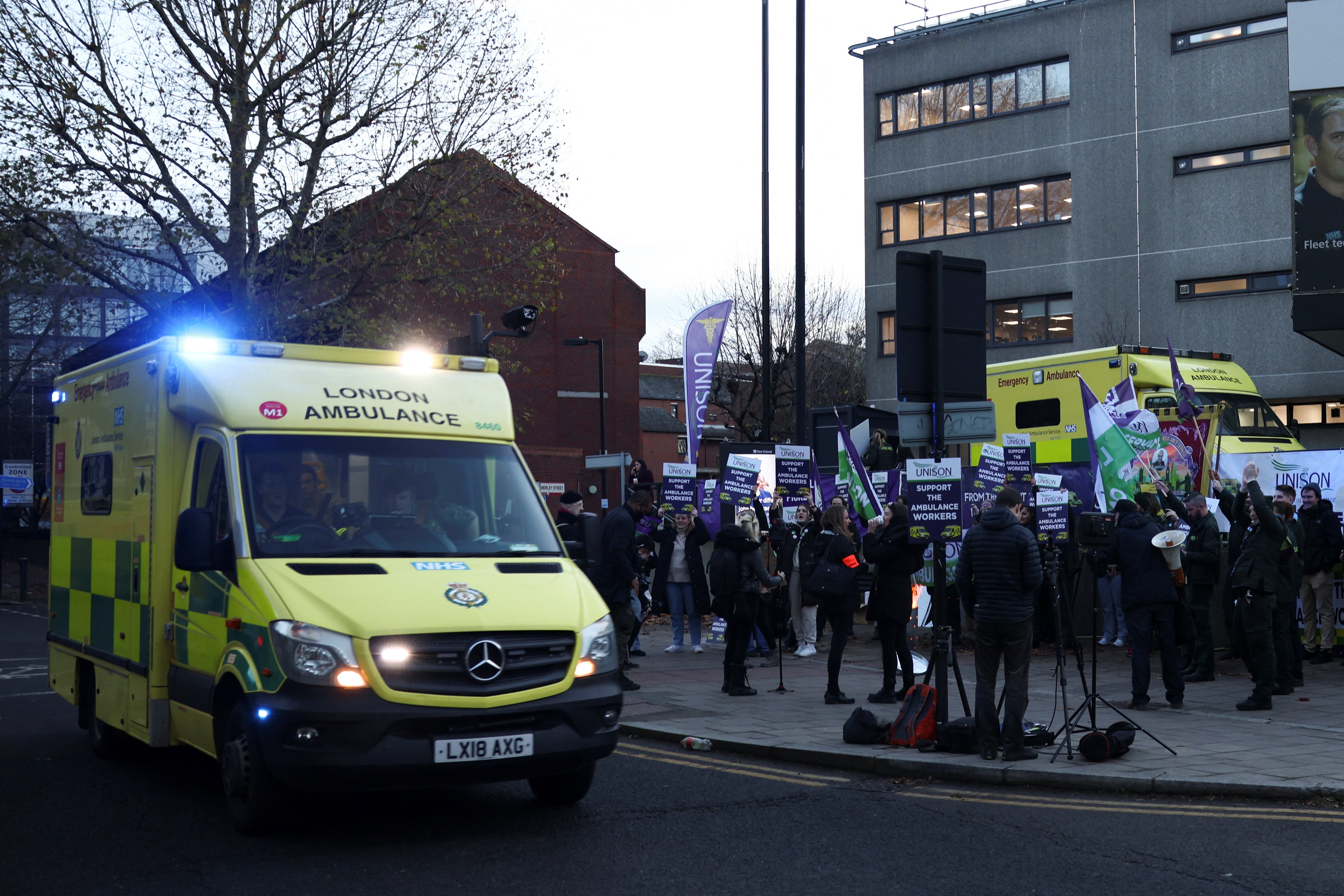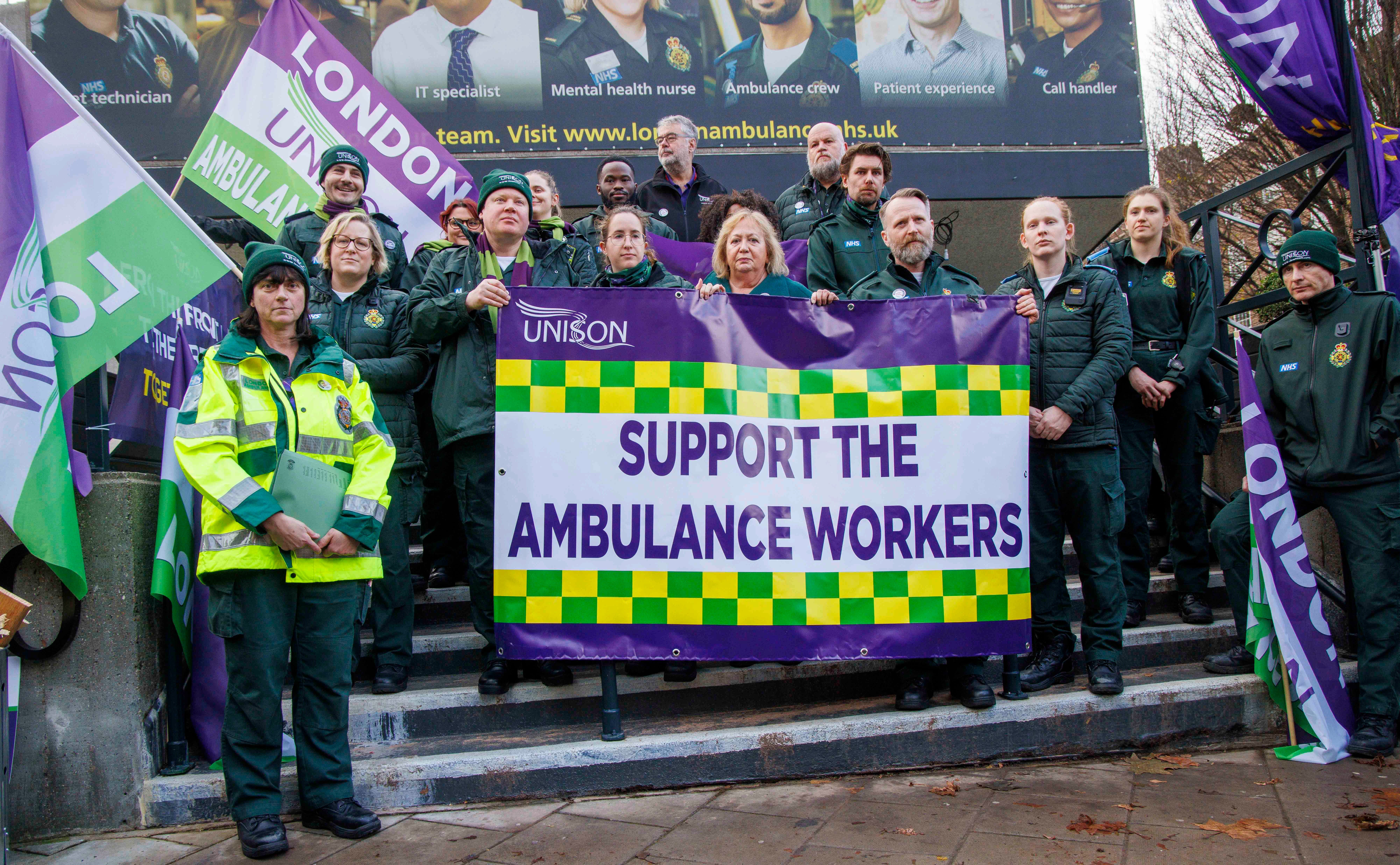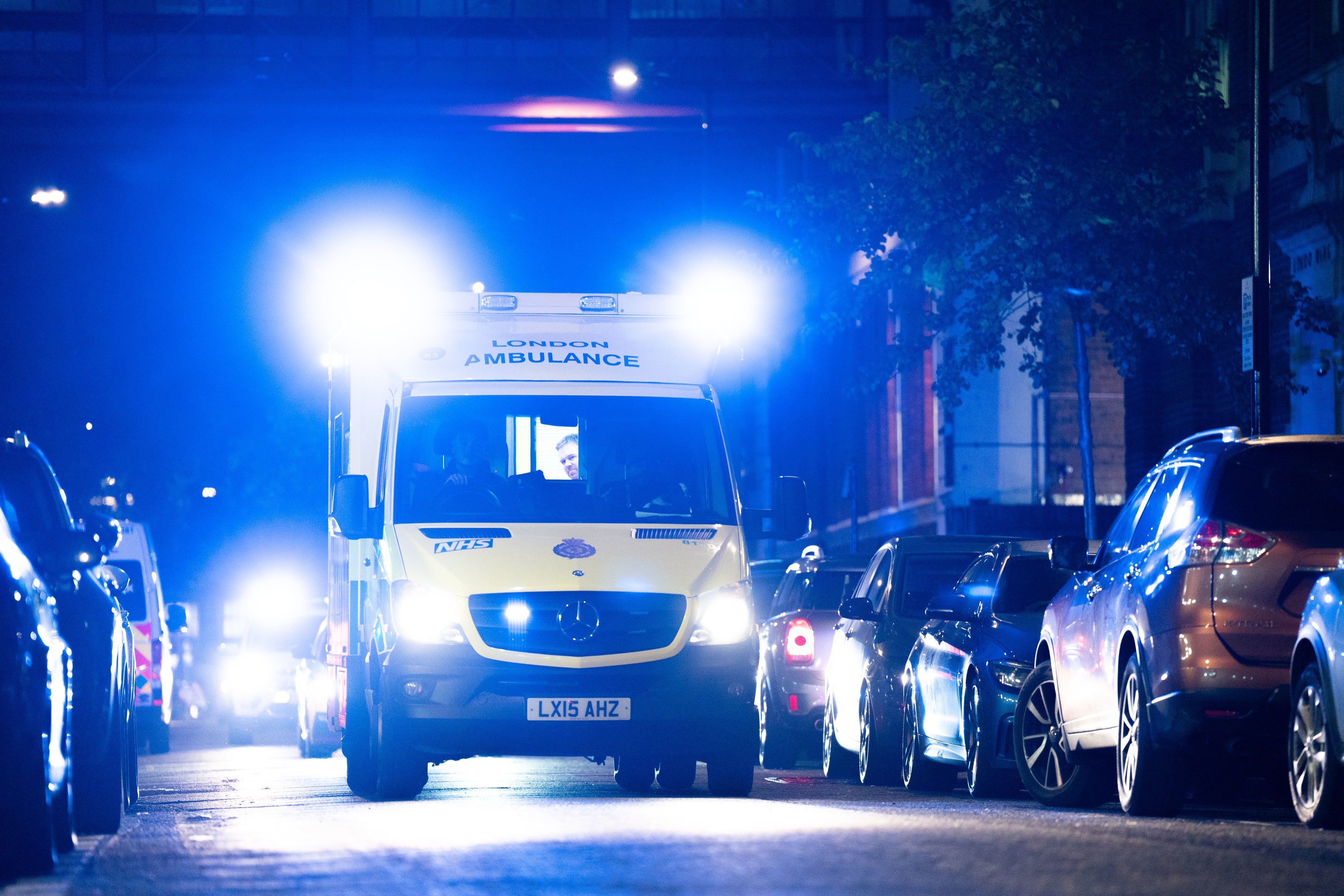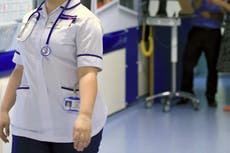Ambulance workers announce fresh strikes in new year
The action will affect London, Yorkshire, the north west, north east and south west of England
Ambulance workers in Unison will stage two further strikes in January in the dispute over pay and staffing, the union announced.
Members of the union in five ambulance services in England will walk out on 11 and 23 January.
The strike will affect London, Yorkshire, the North West, North East and South West and follows action by members of three ambulance unions on Wednesday.
NHS ambulance staff belonging to three unions walked out on 21 December, with a second strike scheduled for 28 December, unless a last-minute agreement can be forged in pay negotiations.
The strike by around 25,000 members of the GMB, Unite, Unison unions is the latest blow to Britain’s stricken health service after members of the Royal College of Nursing took part in industrial action on 15 and 20 December.
Unison general secretary Christina McAnea said: “It's only through talks that this dispute will end. No health workers want to go out on strike again in the new year.
“But accusing NHS staff of making a conscious decision to inflict harm on the public by taking action this week was not the health secretary's finest hour.

“Neither was it a particularly smart move for Steve Barclay to falsely accuse health unions of failing to deliver a national emergency cover plan. The secretary of state knew full well life and limb cover arrangements were being agreed locally by ambulance managers and unions.
“It's time Steve Barclay stopped with the insults and fibs and called the unions in for proper talks about improving NHS pay.”
After the festive break, the union will begin to ask around 13,000 staff in 10 English NHS trusts if they are prepared to take strike action in the spring.
This is because the turnout in the previous strike ballot, the results of which were announced last month, fell just below the threshold required by law.
This includes all the remaining five ambulance services in England - the West Midlands, East Midlands, East of England, South East Coast and South Central. There will also be a re-ballot of staff working for the Welsh Ambulance Service.

Christmas could be one of the darkest to date for the health service, trust leaders have predicted as they warned strikes threaten to aggravate an “already deeply challenging situation” in the NHS.
Health chiefs are working to mitigate the impact of industrial action alongside having to contend with an “incredibly long list of other serious challenges”, NHS Providers said.
Figures for last week show that one in four ambulance patients in England waited more than an hour to be handed to A&E teams at hospitals, while new data suggests patients in hospital with flu in England has “skyrocketed” and Strep A is driving “near record” demand for NHS 111 services.
Handover delays were high across the whole of last week, with no clear evidence that industrial action taken by nurses on their first strike day had a specific impact.

Unions have long argued they are striking not just over pay but due to the state of the healthcare system, which they claim has been chronically underfunded and is short-staffed, leading to concerns for patient safety.
The majority of ambulance trusts in England declared critical incidents this week - meaning they were on their highest level of alert where they feared they could not provide usual critical services.
NHS Providers, the membership organisation for the NHS hospital, mental health, community and ambulance services, has reiterated its call for urgent discussions between the unions and Government about pay in order to avert further strike action.
Health secretary Steve Barclay is considering fast-tracking an NHS pay rise next year in a bid to resolve the dispute but has so far ruled out any movement on current wages.
On Thursday, despite calls to discuss pay, he tweeted to say his “door is always open to talk to trade unions about concerns around working conditions”, and repeated the government line that they will continue to defer to the “independent pay review body” process to “ensure decisions balance the needs of staff and the wider economy”.
Join our commenting forum
Join thought-provoking conversations, follow other Independent readers and see their replies
Comments


Bookmark popover
Removed from bookmarks